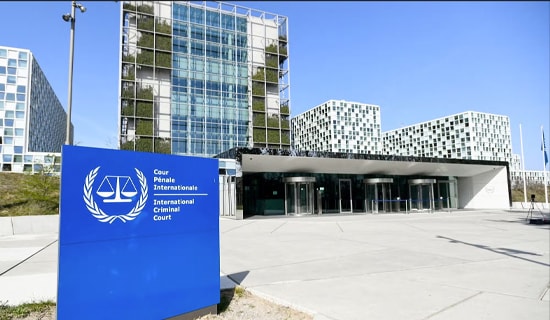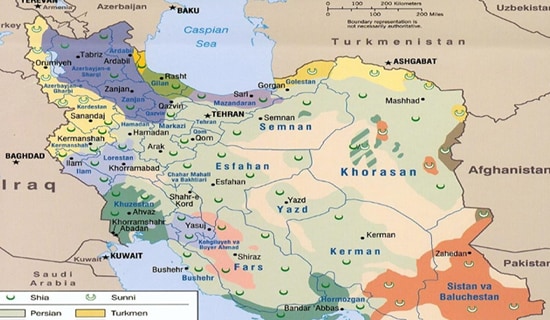Syrian president Bashar al-Assad's statement on March 5, 2005, that Syria will withdraw its forces to the Al-Biqa' region "in accordance with the Taif Accords, which are consistent with [U.N.] Security Council Resolution 1559,"[1]was backed by the Syrian government media. Senior officials and columnists claimed that al-Assad's speech was a continuation of past Syrian policies, noting that Syria had already begun a withdrawal from Lebanon in 1999. In their opinion, the purpose of Resolution 1559 was not to make Syria withdraw from Lebanon, but rather to facilitate the implementation of Western programs for a new regional order.
On the other hand, Syrian opposition figures and human rights activists emphasized that the essential question in Syria is that of implementing domestic reform and democratization, and not the withdrawal from Lebanon, which should have taken place long ago.
For its part, the Muslim Brotherhood movement in Syria interpreted al-Assad's words as a capitulation to foreign pressures.
The following are translations of some of the reactions from Syria: Senior Officials and the Government Press: The Demand for a Syrian Troop Withdrawal is Only a Cover
Syrian Minister of Expatriates, Buthayna Sha'ban, told the UAE daily Al-Khaleej that "the decision on a Syrian withdrawal from Lebanon and Bashar al-Assad's speech are the start of an easing of relations in the region… Syria has always, in the past, in the present, and in the future, aspired to relieve tensions in the region and to [establish] peace and stability in the region, and Syria is attempting to act in concert with pro-peace and pro-stability forces in order to relieve tensions, since tensions, violence, and wars adversely affect life, development, and the future of our children in this region."
In response to the question of whether the aim of U.N. Security Council Resolution 1559 is a Syrian withdrawal from Lebanon, Sha'ban said: "Obviously a Syrian withdrawal from Lebanon is not the aim of Resolution 1559, given that in 1999 Syria [already] began to redeploy its troops, and we withdrew more than 25,000 soldiers without the world saying anything about the issue of the Syrian forces. [But] now, when we have announced a complete withdrawal, they are saying that it's not sufficient…
"Anyone who has read what the new Republicans [apparently a reference to the neoconservatives] have been writing since the mid-90's knows that there is a program to make over the region, that is, to divide up the Arab countries into tribes, peoples, sects, and races. This is the true danger in programs that come to us from without … therefore, whatever Syria does, they will say that it is not sufficient, since they want to invent reasons and justifications for acting according to their program for destroying the future of the region. [For my part] I think that the principle target they are attempting to strike at is Arabism."[2]
Similar sentiments were expressed in an editorial by columnist Izz Al-Din Al-Darwish in the official Syrian daily Teshreen: "As President Bashar al-Assad predicted in his speech last Saturday, the storm over the Syrian withdrawal from Lebanon continues … the skepticism and the storm don't leave any room for doubt: Lebanon and Syria are standing before a new phase in the program [whose aim is] to impose Israel as the hegemonic power in the region in accordance with the Greater Middle East plan…
"Their aim is not Lebanon's freedom and democracy; the Lebanese are not lacking anything in that respect. Their aim is also not the Syrian military presence in Lebanon, since this presence is basically tied to the Lebanese's wishes and to the Taif Accords, and this can be dealt with directly between the two countries, as is happening in fact. The principle aim [of those demanding a withdrawal] is to damage Syrian-Lebanese relations [and to fulfill] Israel's wishes, and not the wishes of the Lebanese and the Syrians. Israel wants a true disaster [to befall us] now and in the future…
"Syria will carry out its obligations under the Ta'if Accords and Resolution 1559 … but will the problem end with that, and will those foreign elements claiming to call for Lebanon's freedom stop making [further] demands? Will the cacophonic screeching stop? Of course not. The issue is far beyond that, and what is happening today is only the beginning."[3]
Muhammad Kheir Al-Jamali, columnist in the Syrian daily Al-Thawra, claimed in his article that al-Assad acted wisely when he related favorably to Resolution 1559, and that in so doing he foiled an attempt to cause a row between Syria and the U.N. According to Al-Jamali, al-Assad's speech uncovered "an assault of falsification and pressures through which they wanted to portray Syria as if it opposes withdrawing its forces from Lebanon and refuses to relate positively to Resolution 1559…
"But President al-Assad in his renowned acumen, his well founded wisdom, and his penetrating insight into veiled matters surprised the forces ambushing Lebanon and Syria and those that feed on them within Lebanon, when he explained that throughout all his meetings with international envoy Terje Roed-Larsen, with his fellow Arabs, and with senior officials visiting Syria, he emphasized that Syria related positively to Resolution 1559, despite our reservations concerning it. [Likewise, he emphasized] that the problem is with the article [dealing with] the resistance [disarming Hezbollah] and with the secret article [dealing with] naturalization [of the Palestinian refugees in Lebanon]…
"Perhaps this truth more than all of the others is what reveals why increasing pressures were applied on Syria and why Lebanon was chosen lately to be the epicenter for an escalation of these pressures, by way of the horrid crime of Al-Hariri's murder… [Since] the only party to benefit from this crime, and whose goals turn it into the only suspect in the perpetration of this crime, is Israel.
"It would have been logical, in light of the escalation of the assault of falsification and the pressures on Syria, for Syria to adopt a position that would put it at odds with the U.N., and then it would have been accused of rebelling against international legitimacy so that they could take advantage of this accusation against it to apply more pressures and to enlist the world against it. But President al-Assad's wise [decision] to relate positively to Resolution 1559 and to announce a program for the completion of the withdrawal of Syrian forces from Lebanon has turned the tables on the assessments of those who placed their bets on [Syria's expected] position…"[4]
The Muslim Brotherhood in Syria: Bashar's Speech is a Capitulation to Foreign Pressures
The Syrian opposition internet site Akhbar Al-Sharq published a statement from the Muslim Brotherhood movement in Syria in which it expressed its disappointment with "[Bashar al-Assad's] capitulation to foreign pressures and threats, with his distancing himself from the legitimate and urgent demands of the [Syrian] people and with his ignoring the need for domestic reform, national unity, and shoring up the domestic front."
Likewise, the movement called for convening "a general national conference, as soon as possible, in which all components of the Syrian people will participate … in order to draw up a serious and effective plan of action for getting the homeland out of the profound crisis in which it finds itself as a result of the implementation of the regime's divide and rule policy and its policy of tyranny."[5]
Opposition and Human Rights Activists: al-Assad's Speech is not Sufficient; Domestic Reforms are Necessary
Opposition and human rights activists said that the problem on the table is not the Syrian withdrawal from Lebanon – which, in their opinion, indeed should take place – but rather the need for domestic reform and the development of democracy in Syria.
Opposition leader Akram Al-Buni, a signatory to the intellectuals' petition which called on al-Assad to withdraw Syria's forces from Lebanon,[6]noted that "the decision to withdraw the Syrian forces from Lebanon is a positive step, but the problem on the table is not related to the procedural course of action – that is, the withdrawal – but rather to the beginning of a change in the outdated mentality in the conduct of Syria's Lebanon policy. The meaning of this is the turning to domestic [affairs] and to building democratic life in place of the outdated mentality…
"In the domestic arena there are no signs of improvement in the situation; we are still awaiting the fulfillment of the promises. Among Syrian intellectuals there is a widespread [feeling] of distrust in the government's promises regarding domestic [affairs]. This government has not been able to establish to this very day a well-defined reformist trend that could construct a uniform program concerning transition to democratic working principles. We hear verbal promises, but the actions on the ground are the opposite."[7]
Chairman of the Syrian Association for Human Rights, Haytham Al-Malih said: "There is nothing new in President al-Assad's speech. The withdrawal from Lebanon should have taken place years ago. Syria entered Lebanon in order to stop the bloodshed in the civil war. This war ended years ago, and since then the Syrians should have left [Lebanon]… Al-Assad has never dealt with the domestic situation which is deteriorating with every passing day to the point of crisis. Despite the international and Arab demand [to adopt] a democratic path and to grant freedoms, Syria is still a long way from this. Yesterday a state security court condemned two students to imprisonment for many years while denying them their civil rights. Where is the domestic security and stability in Syria?"[8]
Similar sentiments were expressed in an address to President al-Assad by columnist As'ad 'Abboud in the Syrian government daily Al-Thawra: "Indeed, sir, we needed your speech yesterday. Moreover, we received it in delay, like plentiful rain on thirsty earth. If what delayed your address to us was your attention to reading people's questions and feeling the pulse of the Syrian street, then know, sir, that you answered [these] questions and you stabilized the pulse. However, we tell you in all truth and honesty: we need more…
"As you pointed out, sir, all of the events that have occurred – the failure of the peace process, the war against Iraq, the tension in Lebanon, and the intense and hostile pressures that have been placed on this tolerant country [Syria], which remains steadfast – all of these events have [adversely] affected our domestic situation, our development, and the implementation of a reform process, and time will not wait for us forever. The order of the day is to hasten the reform activities with all of their various branches. This requires determined progress in what we call 'reform' in the domestic situation that you, your honor, described as that which stands at the head of your priorities.
"The general impression in the Syrian street is that it would be wise to remove all of the obstacles that stand in the way of fully addressing the domestic situation. You addressed it, made promises concerning it, and at the national conference of the [Ba'th] Party you set a date for it. However, without a doubt there are many decisions and much work that we must carry out quickly…"[9]
[1]The complete text of Bashar Al-Assad's speech in the Syrian parliament appeared in the Syrian News Service – SANA, March 6, 2005.
[2]Al-Khaleej (UAE), March 7, 2005.
[3]Teshreen (Syria), March 9, 2005.
[4]Al-Thawra (Syria), March 7, 2005.
[5]http://www.thisissyria.net, March 9, 2005.
[6]Syrian intellectuals' petition to Assad, see MEMRI Special Dispatch Series #871: Syrian Intellectuals Call Upon President Al-Assad.
[7]Sham Press (Syria), March 7, 2005. For the Syrian intellectuals' petition to Assad, see MEMRI Special Dispatch Series #871: Syrian Intellectuals Call Upon President Al-Assad.
[8]Sham Press (Syria), March 7, 2005.
[9]Al-Thawra (Syria), March 7, 2005.








